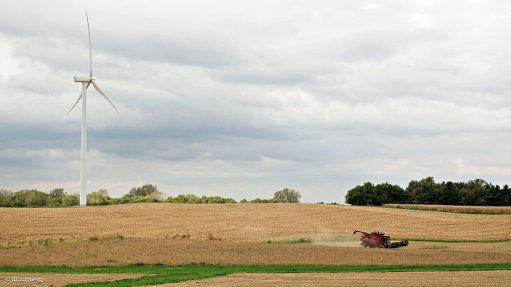
RENEWED AND ENERGISED
There are obstacles hampering the growth of the renewable-energy sector
Photo by: Bloomberg
Owing to power generation and energy supply uncertainty in South Africa, renewable-energy solutions provider Economic Development Solutions (EDS) believes that this creates opportunities for private-sector participation in energy supply.
“With the looming possibility of load-shedding over the next 18 months and the inability of State-owned power utility Eskom to generate power in terms of the Integrated Resource Plan (IRP), the focus on the supply of renewable energy by independent power producers (IPPs) needs to intensify,” says EDS MD Janine Espin.
However, she notes that there are obstacles hampering the growth of the renewable-energy sector.
One of the most prominent obstacles for the private sector in this regard is the lack of government consistency, Espin points out. “There have been long delays with bidding rounds and delays with the IRPs.”
Moreover, she notes that the constant change in Ministers results in changes in priorities regarding the energy sector and, consequently, every new and unique challenge is not given sufficient attention. There are also political challenges that the private sector faces in terms of the energy sector.
Among these political challenges are opposition from coal truck drivers, who state that they are likely to lose their jobs if government supports renewable-energy projects, adds Espin.
Meanwhile, she states that the effects of Covid-19 are likely to be felt in the near future, as renewable-energy projects have to deal with different scenarios that are dependent on the outcome of the lockdown.
“Current projects that are under construction are likely to feel the pinch, with all employees expected to be paid while no work is actually being done,” she notes.
Moreover, if the lockdown is lifted, with the possibility of limitations in the workplace, active construction sites may not be completed on time. “The financial implications of the pandemic are catastrophic. If current projects are not completed on time, there is the possibility of penalty fees that have to be paid.”
The only way to mitigate these challenges is through the will of government to implement changes, she states, adding that various government departments need to be aligned with one another, and alignment and implementation strategies need to be monitored.
Espin concludes that there is likely to be a snowball effect in terms of alignment and implementation of strategies throughout the renewable-energy sector.